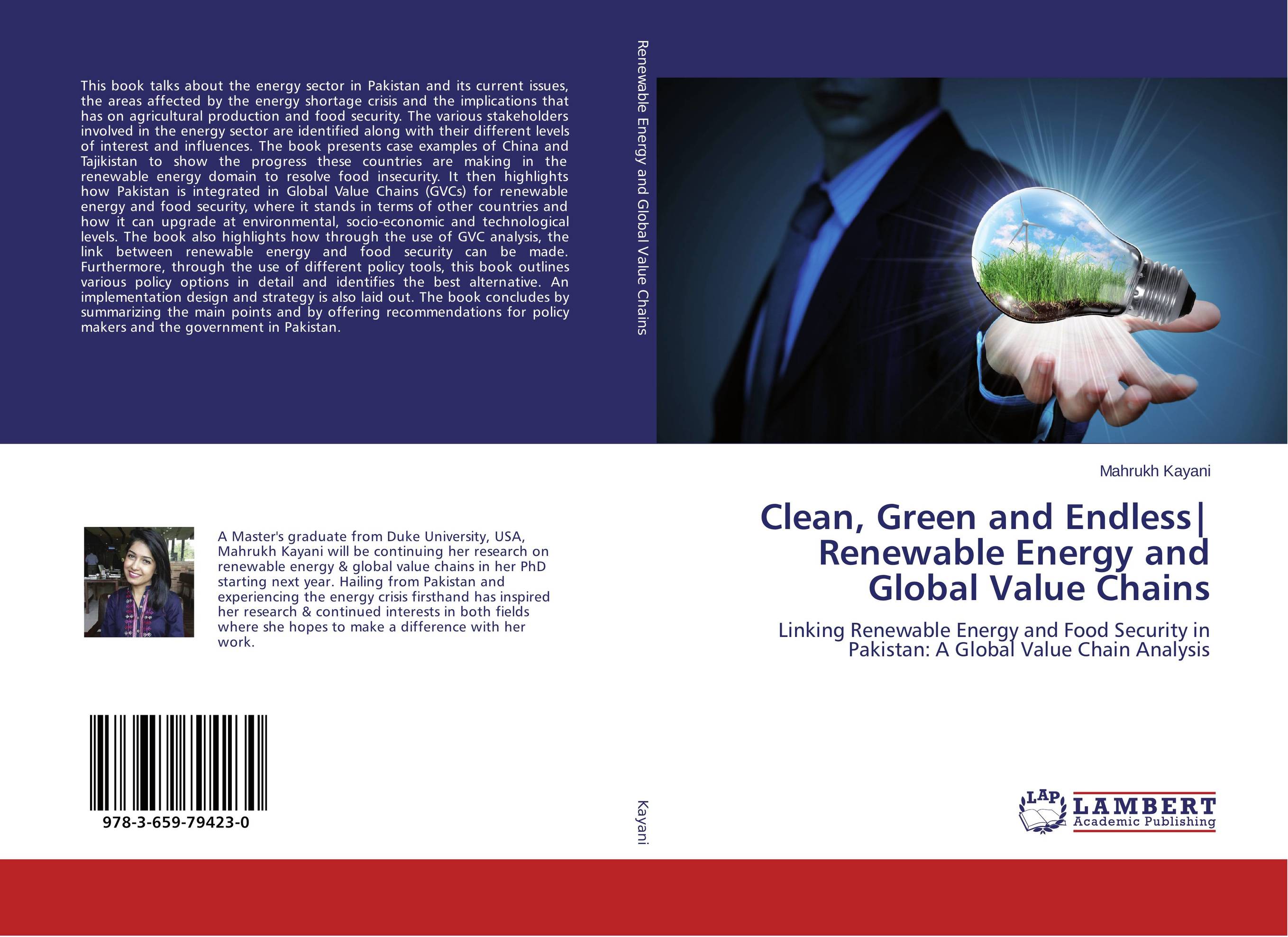| Поиск по каталогу |
|
(строгое соответствие)
|
- Профессиональная
- Научно-популярная
- Художественная
- Публицистика
- Детская
- Искусство
- Хобби, семья, дом
- Спорт
- Путеводители
- Блокноты, тетради, открытки
Clean, Green and Endless| Renewable Energy and Global Value Chains. Linking Renewable Energy and Food Security in Pakistan: A Global Value Chain Analysis

В наличии
| Местонахождение: Алматы | Состояние экземпляра: новый |

Бумажная
версия
версия
Автор: Mahrukh Kayani
ISBN: 9783659794230
Год издания: 2015
Формат книги: 60×90/16 (145×215 мм)
Количество страниц: 100
Издательство: LAP LAMBERT Academic Publishing
Цена: 34328 тг
Положить в корзину
Позиции в рубрикаторе
Сферы деятельности:Код товара: 153836
| Способы доставки в город Алматы * комплектация (срок до отгрузки) не более 2 рабочих дней |
| Самовывоз из города Алматы (пункты самовывоза партнёра CDEK) |
| Курьерская доставка CDEK из города Москва |
| Доставка Почтой России из города Москва |
Аннотация: This book talks about the energy sector in Pakistan and its current issues, the areas affected by the energy shortage crisis and the implications that has on agricultural production and food security. The various stakeholders involved in the energy sector are identified along with their different levels of interest and influences. The book presents case examples of China and Tajikistan to show the progress these countries are making in the renewable energy domain to resolve food insecurity. It then highlights how Pakistan is integrated in Global Value Chains (GVCs) for renewable energy and food security, where it stands in terms of other countries and how it can upgrade at environmental, socio-economic and technological levels. The book also highlights how through the use of GVC analysis, the link between renewable energy and food security can be made. Furthermore, through the use of different policy tools, this book outlines various policy options in detail and identifies the best alternative. An implementation design and strategy is also laid out. The book concludes by summarizing the main points and by offering recommendations for policy makers and the government in Pakistan.
Ключевые слова: Food Security, Global Value Chains, international development, Pakistan, Renewable energy, Sociology, Comparative Economy



